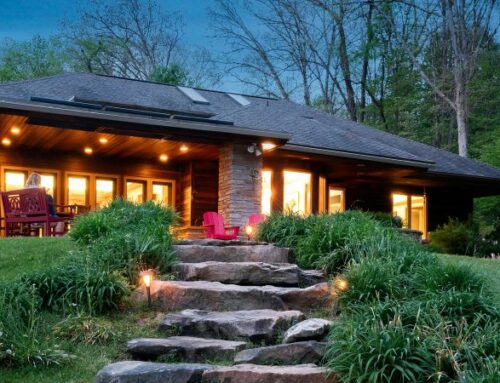Remodeling a home starts with a dream. A gourmet kitchen! Skylights! A gigantic walk-in closet! But, the dream may turn into a nightmare if you don’t plan ahead. Buying a home will arguably become your most important financial investment, as well as a major emotional investment. And remodeling that home can make it better suited to your lifestyle and increase the house value. However, the remodeling process can seem overwhelming at times. If you’re buying a home that you plan to remodel, here are some issues to consider.
It’s always important to make home improvements to satisfy your needs and desires, not just to raise the house value. After all, you’re the one who will be living in the home and enjoying the improvements. However, if you’re making improvements in order to increase the resale value of the house, be careful not to overdo it. It is possible to add too much house value in relation to the other homes in your area, and it can be difficult to recover these improvement costs when you sell the home. Also, some expensive choices, like particular fixtures or flooring, may actually make your home more difficult to sell. Talk with your Coldwell Banker® real estate professional about your remodel plans before putting on your work gloves.
While the specifics of the home you are buying will determine your remodel plans, certain improvement projects have historically provided high ROI’s, or Return On Investments. According to Remodeling Magazine, improving the quality of a kitchen—whether upgrading appliances, changing the layout, counters and cabinetry, or simply painting and swapping out drawer pulls—provides the highest ROI of any remodel project. Also, remodeling or adding a bathroom is a proven way to increase house value.
Before you purchase a house with the intention of remodeling and raising the home value, be sure to investigate the zoning restrictions and environmental regulations. Many older homes come with zoning restrictions, including pre-determined setbacks from property lines, limits on roof height, etc. If the home is on a municipal historic register, regulations will likely be even more stringent in order to preserve the house’s historic character. If the home you are buying is in an environmentally sensitive area—adjacent to wetlands or protected open space, for example—or contains a significant natural resource, additional regulations may limit your remodel plans. Such regulations can impede on house size, paving, grading soil, cutting down trees and removing native plants.
Your attorney can help you determine zoning and environmental regulations and determine if you have the correct permits to begin any home improvement project. In most parts of the world, a legal permit is required before you make structural changes to your home. The building permit and associated inspections and approvals can provide assurance that the remodeling project meets local building codes and safety regulations. If you live in a historic district this process may also provide assurance that exterior changes to your home are in keeping with neighborhood guidelines.
Lastly, before buying a home that requires a remodel, be aware that some problems simply can’t be fixed. Whether the desired improvement is prohibited by local regulations, or can’t be undertaken with your budget or time-frame, it’s important to recognize the limitations of your home’s potential.
Looking to buy or sell in the Nevada County area? Give a Coldwell Banker agent a call today!





